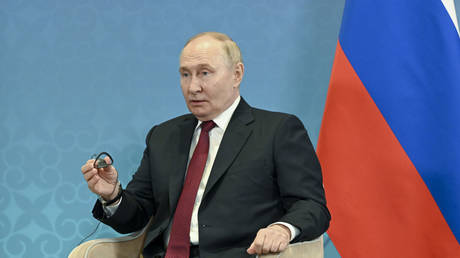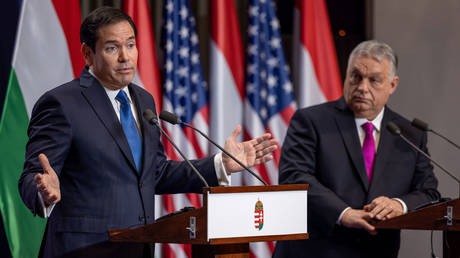
The SCO has been strengthening its role on the global stage, according to the Russian president
The Shanghai Cooperation Organization (SCO) is expanding to become a power center in a world that is evolving towards multipolarity, Russian President Vladimir Putin has said.
Putin made the statement during a meeting with Chinese President Xi Jinping on Wednesday at the SCO summit in Astana, Kazakhstan.
The members of the SCO account for some 20% of global GDP. The grouping was founded in 2001 by China, Kyrgyzstan, Kazakhstan, Russia, Tajikistan, and Uzbekistan. Iran became the newest member of the organization last year, after India and Pakistan joined in 2017.
“I would like to recall that our countries were behind the creation of the Shanghai Cooperation Organization,” Putin told Xi.
The Russian leader said that with the expansion of the SCO participants pool, the organization has “strengthened its role as one of the key pillars of a fair multipolar world order.”
Putin noted that Belarus is about to enter the SCO, becoming the tenth full member.
SCO Secretary General Zhang Ming said last month that with Belarusian accession to the group, the number of SCO member states will reach a “historic double-digit breakthrough.”
The secretary general emphasized that after more than 20 years of development, the SCO has transformed from a regional mechanism for meetings of heads of state into a major, comprehensive international organization.
Currently, 14 countries hold SCO dialogue-partner status, allowing them to participate in the organization’s specialized events at the invitation of its members.
In May, Russian Foreign Minister Sergey Lavrov told reporters that Algeria had applied to become a dialogue partner of the SCO. According to the minister, Laos has also submitted an application. He said both countries would be eligible for SCO membership once they have attained both dialogue-partner and observer status.




